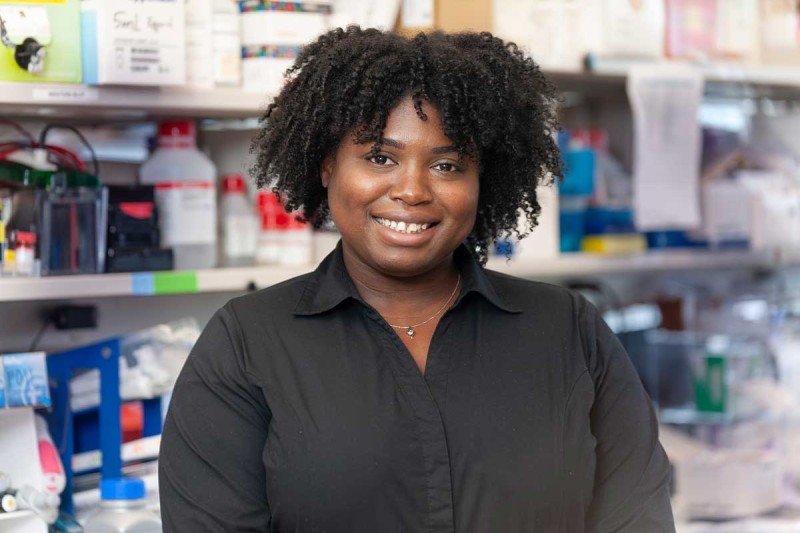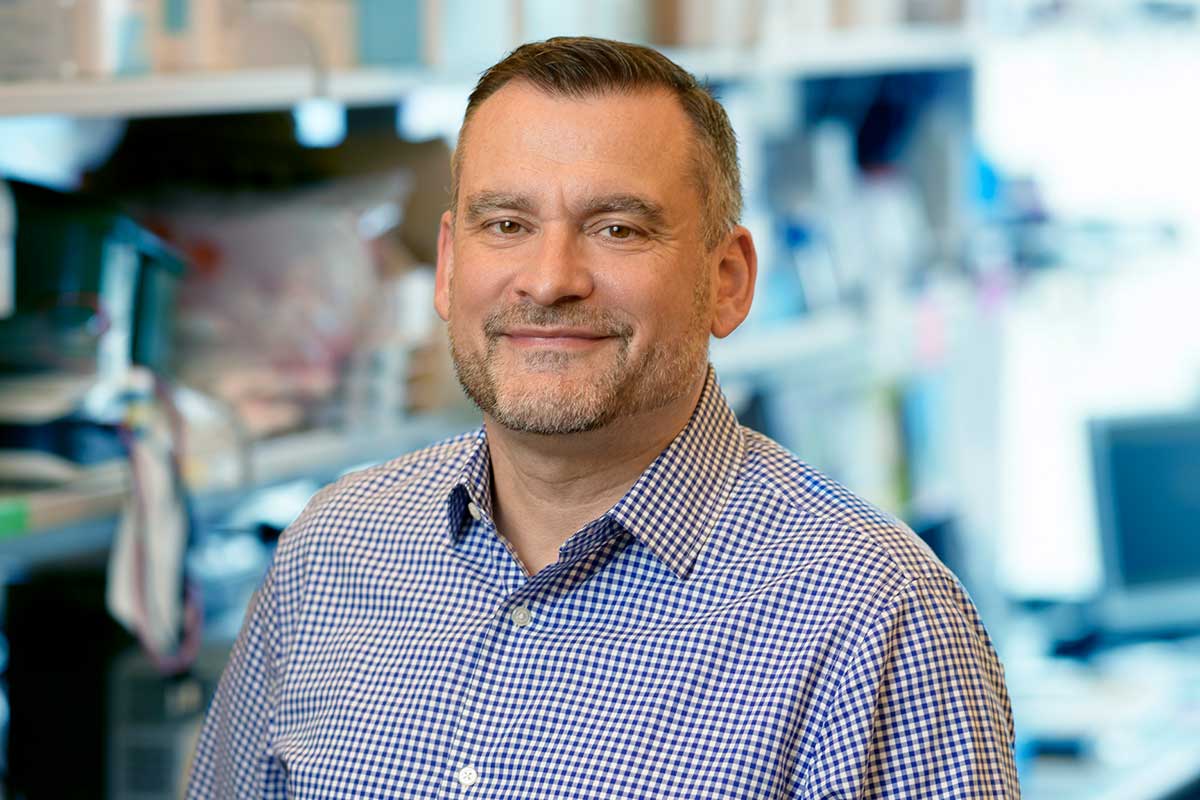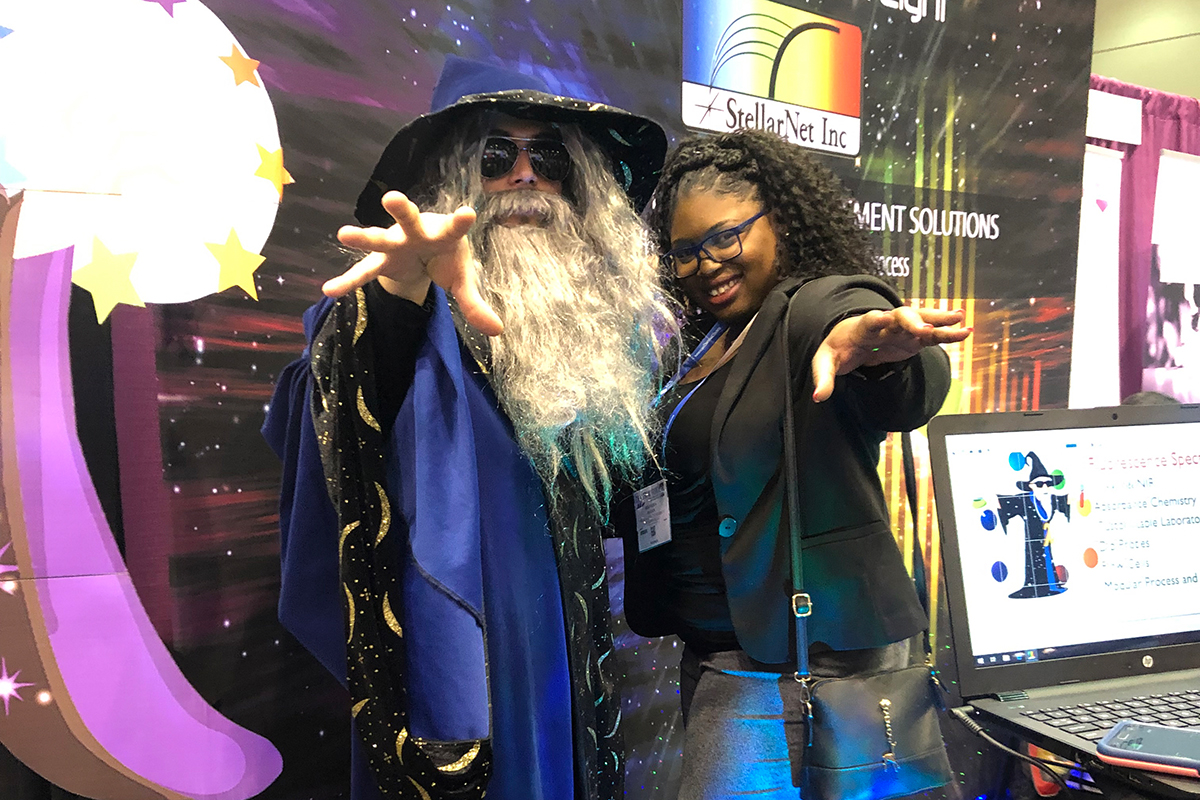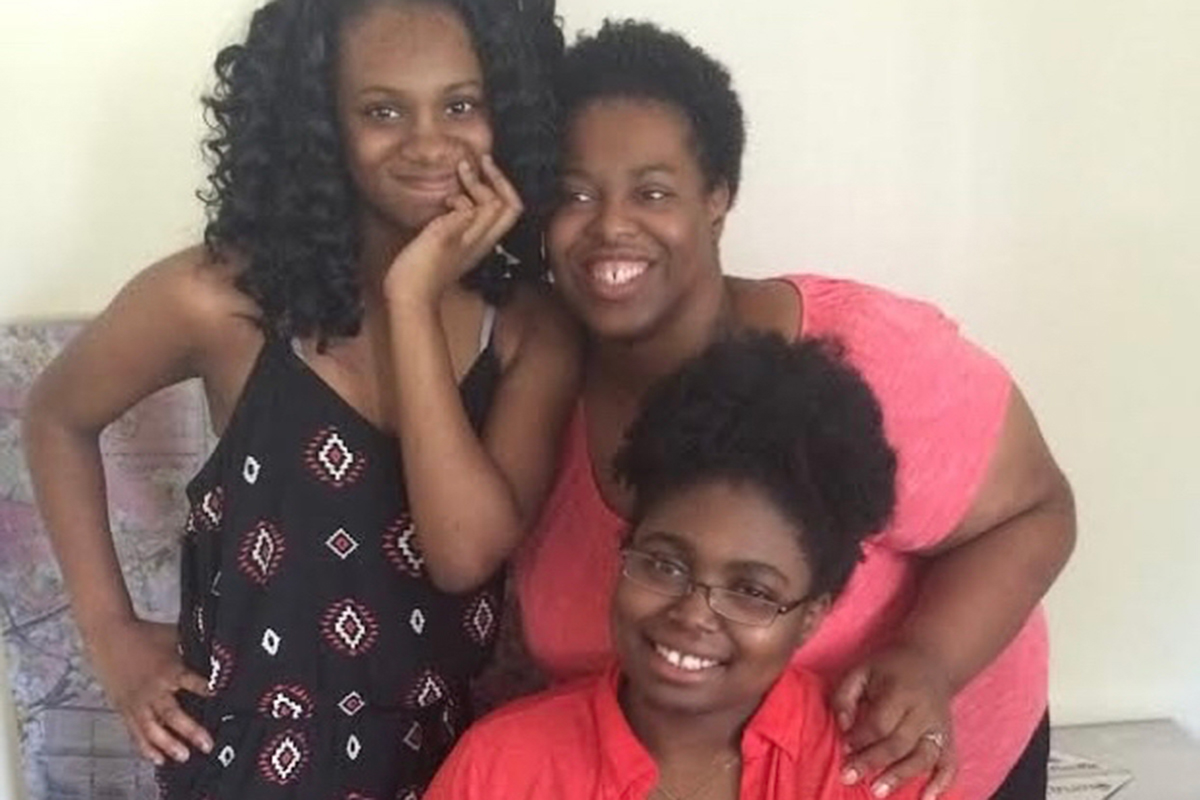
Research fellow Shaniqua Hayes joined the Jason Lewis Lab at the Sloan Kettering Institute (SKI) and Memorial Hospital about a year ago, after attending an online postdoc recruiting event and picking up “good vibes” about SKI.
Finding Joy in Scientific Puzzles
A native of Louisiana and self-described introvert, Shaniqua had never been to New York City before, but made the move after earning her PhD in fluorescent imaging at Louisiana State University in Baton Rouge.

Shaniqua works on developing antibody-based imaging agents for use in the diagnosis and treatment of ovarian cancer. In the Lewis Lab, she is currently focused on the creation of a multimodal probe for fluorescent and PET imaging that will give doctors a noninvasive way to determine the exact size and location of a tumor. The probe will also enable fluorescent-guided surgery that will make it easier to see and remove tumors.
“Most patients with ovarian cancer are diagnosed with metastatic disease because symptoms are hard to discern in the beginning,” Shaniqua explains. “There is a great need for better tools to help find and treat ovarian cancer, and that’s been my priority for most of my scientific journey.”
Evolution of a Scientist
Shaniqua grew up about 10 minutes outside of New Orleans in a close-knit family that included her mom, her grandparents, and her younger sister. Her mother has told her that she was “the nerdiest child ever.”

“I was the kind of kid who asked for H2O, rather than water,” Shaniqua says. “I had all the Dr. Seuss books. When somebody came to the house, I’d grab a book and demand that they listen to me read. It was often one of my grandmother’s friends and they’d listen until they fell asleep.”
When Shaniqua was 13, Hurricane Katrina hit New Orleans. Fortunately, Shaniqua’s home was spared, but she and her family were forced to evacuate the area. “My entire family, including my grandparents, aunt and uncle, and two cousins, ended up living with a friend of my aunt for a month,” she remembers.
When she was finally able to return home, she found everything changed. Shaniqua’s high school was forced to hold classes in trailers for the next two years because of hurricane damage. A lack of space and staff required the school to forgo many of the extracurriculars, like regular band practice and a variety of sports teams, that are common in high school.
But the school did offer chemistry, which launched Shaniqua’s interest in science. Although she started college at the University of New Orleans as a biology predental major, she soon changed her major to chemistry after one class with a “terrific” professor, who reignited her interest.
Another professor enabled a close-up look at science’s potential to address serious problems — a lifelong passion for Shaniqua.

“There was an oil spill in the Gulf of Mexico while I was in college,” she says. “I was doing research for my analytical chemistry professor, and we studied photodegradation [the alteration of materials by light] on thin films of water to see how sunlight could degrade oil in water.” Right before her, there was a possible solution to the challenge of oil spills. It was a lesson in science’s problem-solving potential that Shaniqua never forgot.
Inspired, she decided to pursue analytical chemistry in graduate school at Louisiana State University.
Putting Things Right
At SKI, Shaniqua enjoys puzzling things out and troubleshooting. For her, the effort she puts into “fixing” a research problem — the ultimate brainteaser — is as rewarding as the solution itself.
But what she values most at SKI is the work environment, which she says is the “healthiest” she’s ever known. “I really like the lab and the people I work with,” she says. “I was actually surprised when I first arrived at how genuinely nice everyone is.”
Even as a committed introvert, she likes going to the lab every day. “I sit at my desk and listen to the conversation around me and just laugh,” Shaniqua says. She has also found herself happily drawn into events like SKI picnics in Central Park and bowling nights, as well as the occasional lunch out with friends from her lab.
Of course, there are times when her work isn’t going as she hoped, and she feels frustrated — but she knows how to handle that.
“You have to remember that your self-worth is not determined by your research progress,” she points out. “Everyone makes mistakes and has bad days — it’s part of having a career in science. You just have to make a conscious effort to remember why you love what you do, and why you became a scientist in the first place.”
